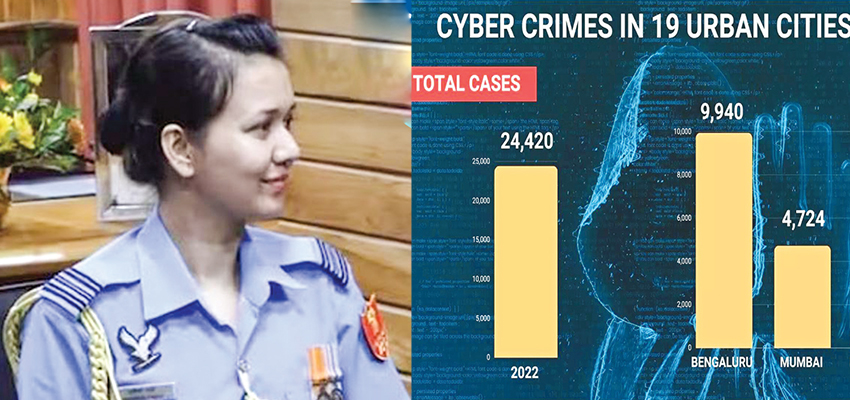
Corporate Citizen claps for Squadron Leader Manisha Padhi for being appointed as first woman from the Indian Armed Forces as Aide-de-Camp (ADC) to any Governor in the country. She assumed office as ADC to Hari Babu Kambhampati, the Governor of Mizoram, effective November 29, 2023.
Padhi’s appointment celebrates a historic moment, that acknowledges diversity and equal opportunities within the Indian armed forces.
A distinguished officer of the Indian Air Force (IAF)’s 2015 batch, her recent appointment signifies IAF’s gender inclusivity ideology in recognising women at the highest levels. The appointment reiterates IAF’s evolving landscape, where merit and capabilities outdo gender limits.
Before assuming her prestigious role as an ADC, she had a befitting career with the IAF, with diverse postings across Air Force stations in Bhatinda, Bidar and Pune.
Manisha hails from Odisha’s Ganjam district and is an alumna of the C.V. Raman Global University (CV Raman College of Engineering) in Bhubaneswar, Odisha. She joined the Indian Air Force in 2018. Squadron Leader Manisha Padhi's appointment goes beyond her achievement and earmarks a significant stride towards breaking gender barriers within the Armed Forces.
The title of ‘Aide-de-Camp’ in India honours distinguished officers, wherein the ADC’s post supports and assists high-ranking officials. The hierarchical distribution of ADCs varies across different ranks of authority. Service chiefs from the Army, Navy and Air Force, typically have three ADCs. The President can have five ADCs, comprising representatives from the Army, Navy, Air Force and Territorial Army. Padhi has set the sights for other aspiring woman officers, in their limitless pursuits within India’s Armed Forces.
Corporate Citizen slaps the increasing number of cybercrimes being reported among the 19 metropolitan cities with over two million population.
According to the recently published ‘Crimes in India-2022’ report, by the National Crime Records Bureau (NCRB), Bengaluru has topped the list with 9,940 cybercrime cases, followed by Mumbai (4,724) and Hyderabad (4,436).
The 19 cities under the scanner reported 24,420 cybercrime cases in 2022, with Karnataka reporting 12,556 cybercrime cases, which is 40 % of the total cases across all metropolitan cities. While an estimated 10,000 cybercrime cases have been recorded in 2022, the alarming factor is that around 10,395 cases, which include pending cases from previous years, have remained unresolved due to lack of evidence.
The irony is that Bengaluru, the Information Technology (IT) capital of India, also has the maximum strength of IT professionals, which reflects on their higher levels of awareness about cyber laws, which has prompted better reporting. However, the idea does not excuse Bengaluru from its current status as a maximum cybercrime city. The evidence is in the NCRB data. In 2022, of the 9,940 cases reported in Bengaluru, the police managed to solve just 1,176 cases (11 %). The city registered 10,555 cybercrime cases in 2019 with the police solving only 2,059 (19%) of these.
In 2020, 8,892 cybercrime cases were registered and 3,001 (30 %) were solved. In 2021, 6,423 cases were registered and of them, 1,902 ( 29 % cent) were solved. In the past five years, Bengaluru reported 41,063 cybercrime cases and in 2022, none of the accused were convicted. Interestingly, only the Hyderabad police have managed to nab two convicts, and in eight cases, the court acquitted the suspects.
Lucknow, Kanpur, and Ghaziabad, which incorporates Noida, another IT hub, have also seen a rise in reported cybercrime cases. In a dilemma between IT awareness and the malicious utilisation of the same knowledge, it is indeed an egg and chicken situation.